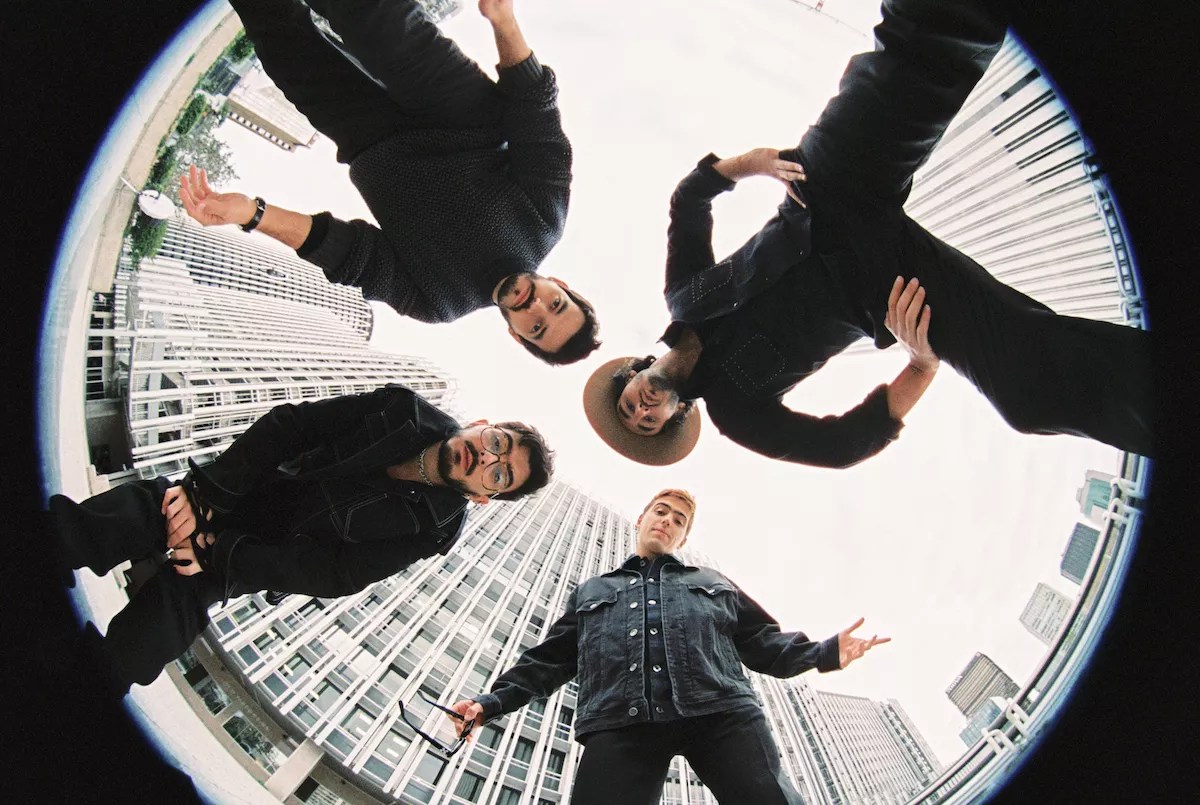
The Syndicate photo

Audio By Carbonatix
If you’re unfamiliar with Bogotá-bred rock band Morat, where have you been in the last few years? Since coming together in 2014, the quartet has released four studio albums, recorded a hit single with Mexican singer Paulina Rubio, followed that up with the band’s hit single, and is currently on a sold-out tour across the U.S.
In 2021, the New York Times‘ Jordan Salama called Morat “one of the fastest growing bands in Latin America.”
So what sets the band apart from the rest of the rock en español crowd? Morat brings to the fore an instrument uncommon to Colombia and rock music in general: the five-string banjo.
“When we were recording our first songs, a friend brought a banjo she had bought in Spain,” bassist and backing vocalist Simón Vargas tells New Times over the phone somewhere in Texas, where the band is performing five shows across the state as part of its Si Ayer Fuera Hoy World Tour. “At the time, we were experimenting with different sounds. We tried mandolins, different kinds of guitars. We borrowed her banjo and just never gave it back.”
Morat, which is rounded out by Juan Pablo Isaza (guitar and vocals), Juan Pablo Villamil (banjo and vocals), and Simón’s brother, Martín Vargas (drums, percussions, and backing vocals), got its start when the members were kids in the Colombian capital city.
“We did play together in different opportunities over the years,” Simón says. “In Colombia, there are a lot of chances to make music, and people get together to perform in school, at Christmas parties, talent shows, and school plays. My brother and I were in various bands; Villamil and Isaza had their bands as well. So although we’ve had an 11-year career with Morat, we have pretty much been making music together in one way or another for over 20 years. There were quite a few musicians around us who wanted to take it to the next level, so we got together. It was not something out of the blue; we were all pursuing careers in the music business.”
It hasn’t been an easy ride for a rock band to succeed in a country where música urbana and reggaeton rule, but the opportunity to play in other countries, Spain, in particular, helped Morat raise its profile.
“Not many musicians were trying something different when we started out, so I must admit we were extremely lucky, and we were also fortunate that we were able to make a career outside of Colombia,” Simón adds. “We went from Colombia and started playing in Spain because our manager took us to other stages and then to Spain, where we found audiences and also radio play. Reggaeton and urbana have a strong connection to Latin American culture, while in Spain, on the other hand, there is a culture of great rock, ska, and other styles. In Colombia, the music scene is also much smaller.”
The band’s sound is quite distinct. With lyrics dealing with love found and lost, the influence of American country music is quite apparent when the banjo is prominent (Morat also uses instruments like the ukulele and acoustic guitars) in songs such as “Amor Con Hielo” and “Paris,” two tunes with strong backbeats and strong choruses sung in unison by all four members, but also contemporary rock and a bit of a Latin feel, especially in collaborations with the likes of Juanes and Mexican singer Danna Paola.
It was a 2015 collaboration with Mexican pop singer Paulina Rubio, the hit single “Mi Nuevo Vicio,” that first brought them to prominence and led to their success.
“We probably would not collaborate with her again, even though we are very grateful for that opportunity, which was impossible to turn down,” Simón says. “Nowadays, we try to work with artists that have a distinct style that works better with our sound.”
Morat. 8 p.m. Sunday, February 19, and Thursday, February 23, at James L. Knight Center, 400 SE Second Ave., Miami; 305-416-5978; jlkc.com. Tickets cost $43 to $196 via ticketmaster.com.